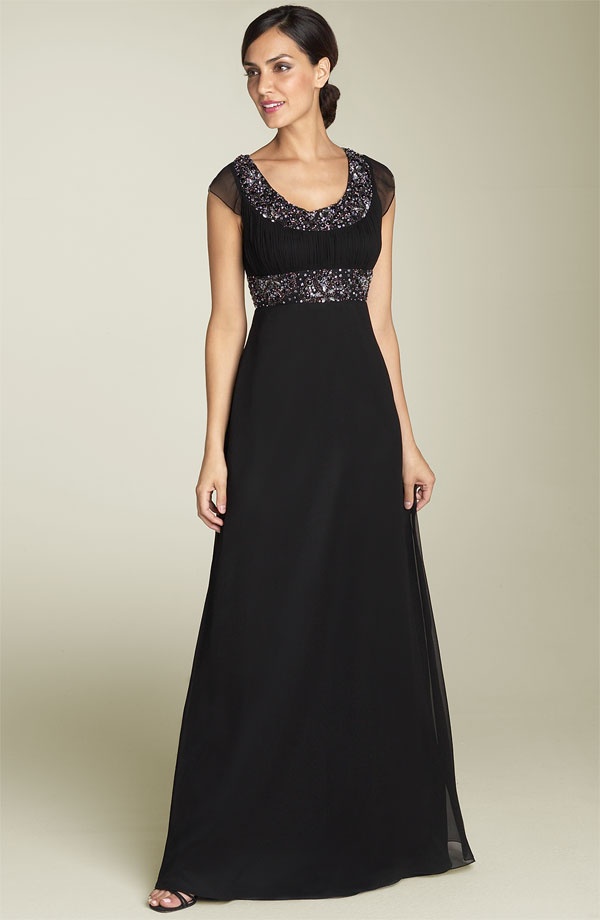Elegance Redefined: The Essence Of Black Tie Dress
When it comes to formal events, few dress codes evoke as much intrigue and elegance as the black tie dress. This sartorial tradition has been a staple in the fashion world for centuries, representing sophistication and class. Understanding the nuances of this dress code is essential for anyone looking to make a lasting impression at upscale gatherings, from galas to weddings. The black tie dress code signifies more than just the attire; it embodies a lifestyle of refinement and taste. As we delve deeper into the world of black tie dress, we will explore its history, variations, and the essential elements that make up this glamorous look.
As you prepare for your next formal occasion, knowing what to wear and how to style your outfit can be a daunting task. The black tie dress code often leaves individuals wondering, "What does it really mean?" Is it strictly limited to men in tuxedos, or do women have their own set of guidelines to follow? Fear not, as we will unravel these queries and provide you with a comprehensive understanding of the black tie dress code.
In today's fast-paced world, where fashion trends come and go, the black tie dress code remains a timeless choice that never goes out of style. Whether you are attending a charity ball or a fancy wedding, the black tie dress allows you to express your personality while adhering to the elegance expected at such events. Join us as we embark on this stylish journey to discover the ins and outs of the black tie dress code.
What is the History of the Black Tie Dress Code?
The black tie dress code has an illustrious history that dates back to the 19th century. Originally, it emerged as a more relaxed alternative to the formal white tie dress code, which was prevalent among the elite. The black tie dress began to gain popularity in social circles, especially during evening events. Over time, it evolved into a symbol of elegance and sophistication.
How Has the Black Tie Dress Code Evolved Over Time?
As fashion trends shifted, so too did the interpretation of the black tie dress code. In the early 20th century, men typically wore black tailcoats, white dress shirts, and bow ties. However, as the decades passed, the dress code became more inclusive, allowing for variations such as the classic tuxedo. Today, women have embraced the black tie dress code with a myriad of choices, from elegant gowns to chic cocktail dresses.
What Are the Key Elements of a Black Tie Dress?
Understanding the essential components of a black tie dress is vital for anyone looking to adhere to this dress code. For men, key elements include:
- A black tuxedo jacket
- Matching trousers
- A formal white dress shirt
- A black bow tie
- Black patent leather shoes
For women, the black tie dress code allows for a range of stunning options, including:
- Floor-length evening gowns
- Chic cocktail dresses
- Elegant accessories
- Heels or dressy flats
What Should You Avoid Wearing to a Black Tie Event?
While the black tie dress code offers a wide array of fashionable choices, there are certain attire that should be avoided. Men should steer clear of casual shoes, denim, or any form of leisurewear. Women should avoid overly casual dresses or accessories that appear too informal. The goal is to maintain a polished and sophisticated look.
How Can You Accessorize for a Black Tie Event?
Accessorizing plays a crucial role in completing your black tie dress. For men, this may include cufflinks, a pocket square, and a classic wristwatch. Women can elevate their look with statement jewelry, elegant clutches, and sophisticated hairstyles. Remember, accessories should enhance your outfit without overwhelming it.
Are There Any Celebrity Inspirations for Black Tie Dress?
Celebrities often set the tone for black tie dress with their stunning red carpet appearances. From the glamorous gowns worn by A-list actresses to the perfectly tailored tuxedos sported by male stars, their choices can serve as inspiration for your own black tie dress. Some notable examples include:
- Emma Stone in a stunning black gown at the Oscars
- Ryan Gosling's classic tuxedo at the Golden Globes
- Rihanna's bold fashion statement at various gala events
Understanding the Etiquette of a Black Tie Event
Attending a black tie event comes with its own set of etiquette rules. Arriving on time, mingling respectfully, and maintaining a gracious demeanor are all essential to ensure a pleasant experience. Additionally, it’s important to remember that the black tie dress code is not just about the attire; it’s about embodying the spirit of sophistication and respect for the occasion.
What Are Some Popular Black Tie Dress Events?
Various events call for a black tie dress code, including:
- Weddings
- Charity balls
- Formal galas
- Corporate events
Each occasion may have its unique flair, but the black tie dress remains a constant element of elegance and style.
Conclusion: How to Master the Black Tie Dress Code?
Mastering the black tie dress code is all about understanding its nuances and embracing the elegance it represents. By knowing the history, key elements, and etiquette, you can confidently navigate any formal event with grace and style. Whether you opt for a classic tuxedo or a stunning evening gown, the essence of the black tie dress lies in your ability to express sophistication while celebrating the occasion. So, the next time you receive an invitation with a black tie dress code, you can embrace the challenge and make a lasting impression.
Article Recommendations
- Cast Of Shrek
- Subashree Mms
- Katy Perry
- Tony Hinchcliffe Parents
- Richard Hillman Cause Of Death
- Ari Kytsya Nude
- Age Ramona Singer
- Justina Valentine Boyfriend
- David Arthur Carr
- Jan Bunch




